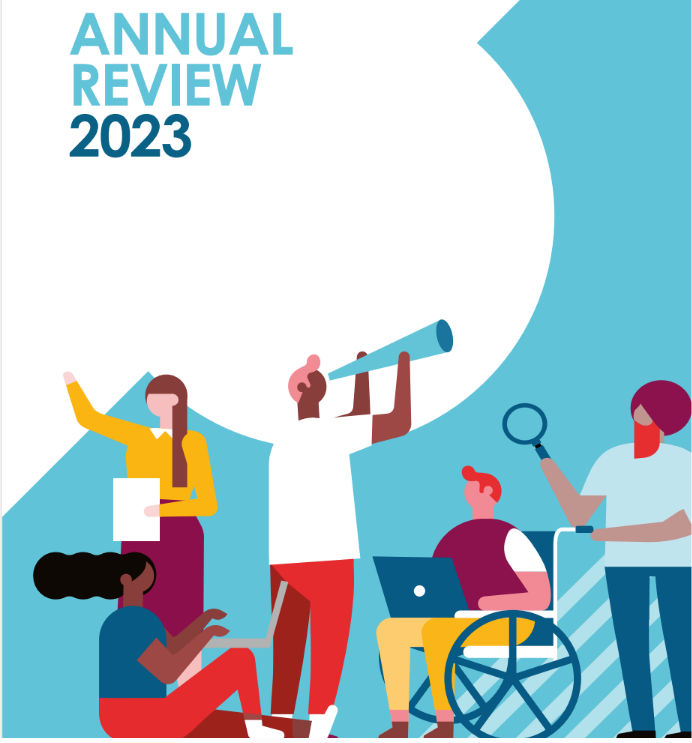The Youth Futures Foundation’s grants panel oversees our grant making approach and operations including making decisions on grant applications recommended for funding. Alongside five members of our board, sit six people who bring a formidable combination of passion, experience and expertise.
Yemi Adeola recognised where opportunity does or doesn’t knock at an early age. Born in Nigeria, when he was six Yemi’s family moved to the borough of Barking and Dagenham in East London, one of the most deprived local authorities in the country. Life changed for Yemi quite dramatically when he was awarded a scholarship to a private school in Ealing.
‘The level of ambition at the school was very different. It was a rite of passage. Outcomes were prioritised over everything with an expectation that everyone would go on to an elite university.’
Yemi went on to study at Warwick University where he observed that students with the most social capital were better equipped to take advantage of the opportunities on offer. He almost withdrew his application after it became clear that a question over his status was entirely due to prejudiced preconceptions about his surname.
Now 22, Yemi is a Fellowship Councillor and Trustee for the RSA and a future trainee solicitor.
He founded a social enterprise called Project Access to widen access for young people from disadvantaged backgrounds to top universities, has supported students via mentoring schemes and is a coordinator at social mobility charity Big Voice London.
Yemi is also a member of Youth Futures Foundation’s grants panel, charged, alongside his five fellow panel members, with overseeing the organisation’s grant making approach, making decisions on grant applications, ensuring grant making criteria are fit for purpose and advising and guiding the approach of the grant programme. Amongst a very diverse group there is a common recognition that there is not equality of opportunity for all young people and a passionate ambition to do something about it, much of it, like Yemi, informed by personal experience.
Ray Plummer’s long and distinguished career has spanned working in special education, community service, campaigning on social issues, particularly those affecting people from ethnic minority communities, and the last decade with the National Careers Service, but he says:
‘I remember myself as a young person growing up in Handsworth, Birmingham. Others seemed more clued up; they had a network of support around them, resilience and a sense of direction.’
Describing Youth Futures as ‘a breath of fresh air’, Ray was drawn to support the organisation because of the strong strand of evaluation wrapped around the distribution of resources, its ‘laser focus’ on young people and how the grants programme could help social programmes develop for the better.
Steph Taylor recently moved back home to West Yorkshire and joined Leeds Community Foundation and Give Bradford having worked in a variety of leadership roles in the youth and grant-making sectors. Starting work as a careers adviser for young people excluded from school, Steph recognised that there is no level playing field for many young people. She is concerned that the sheer scale of the impact of Covid-19 on youth unemployment could mean that the most disadvantaged are in danger of being left behind.
‘Imagine a future where all young people can gain the confidence, resilience and networks they need to find and keep meaningful employment; where employers of all sizes know how to find and retain local talent. This future is exactly what Youth Futures can help to achieve, so I was really keen to be part of it. Having spent 20 years working alongside the most excluded young people, and knowing the grant making world inside out, I knew I could make a valuable contribution.’
Peter Wells brings a wealth of academic expertise to the group. Professor of Public Policy Analysis and Evaluation in the Centre for Regional Economic and Social Research (CRESR) and Associate Dean for Research and Innovation at Sheffield Hallam University, he has extensive experience of research on social investment, youth employment programmes, community economic development and related issues.
Peter has followed the progress of Youth Futures since he worked as a consultant on the evaluation of the Talent Match programme which he says, ‘opened my eyes to what could be achieved.’ For Peter, gathering evidence is a critical part of the mix to inform decisions about how to best support the most disadvantaged young people into quality jobs. He’s excited by Youth Futures’ mission.
‘I want to be actively engaged and am delighted to be involved. We know young people in England who face multiple barriers to employment have worse outcomes than their counterparts in other parts of Europe, so it is something systemic. By considering evidence in the round, Youth Futures is not just giving funding in response to a problem but looking at how we can be more effective in the longer term.’
Sarah Lanchin is currently Deputy Chief Executive Officer of Youth Focus North West which works with young people aged 11-25 years. Over 24 years working the youth work and community sector, Sarah has seen first-hand the challenges that many young people face in realising their aspirations and potential in relation to employment.
She was wanted to join the grants panel because she thought Youth Futures was taking a different approach to tackling the issue of employability for young people.
‘I liked that it’s about trying to get to the root causes, and also the organisation is aiming to reach young people who were furthest from the job market or missing out on opportunities that peers from more privilege where accessing.
‘I think all young people deserve opportunity, to be valued, to have their skills and talents celebrated and that workforces only benefit from investing in the growth of younger talent. Even before the pandemic I thought young people deserved better and that has only been exacerbated by Covid. My involvement in Youth Futures Foundation is an opportunity to hopefully play a small role in leaving a more positive legacy for young people’s futures.’
Helping those facing the greatest disadvantage in life characterises Shwetal Shah’s motivation for getting involved with Youth Futures. As a teenager in her native Mumbai, Shwetal volunteered teaching English to young homeless people, one of whom was a 13-year-old boy who had his sights on being a pilot. Shwetal recognised that without the opportunity or infrastructure to support him, he was very unlikely to realise his ambition. Her own ambition is to establish a scholarship to help young people like her former student.
Outside of her role as an International Technology Partnerships Manager with a marketing company, Shwetal is an active campaigner and an advocate on youth issues. She sits on a panel at European Development Days, is on the taskforce of the Y7 summit which takes place just before the G7 summit, and organises events to encourage women into the tech industry and campaigned for a greater diversity of role models in the mainstream media. The latter led her to conversations with the then Prime Minister, Theresa May, and HRH Prince Harry to discuss how young people could be empowered across the Commonwealth.
‘In the Youth Futures Foundation, I saw an opportunity both to support and empower young people. It is not just about giving financial support, but also building relationships and creating an eco-system which gives all young people the opportunity to achieve their ambitions.’
Matthew Poole, Director of grants and Investment at Youth Futures says,
“As an organisation, we are very fortunate to have been able to assemble a group of people with this depth of knowledge, expertise and breadth of experience. Collectively we have an incredible command of the sector, the issues and insight into potential solutions which will enable us to make good, well-informed decisions on where we direct our funding. Perhaps most importantly, all the panel members share a passionate belief that all young people should be able to access to opportunities to meaningful work and Youth Futures’ ambition to make the changes to make it happen.’


